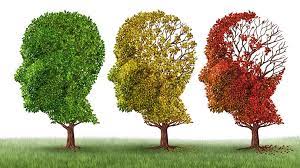Can Alzheimer’s be prevented?
While the exact cause of Alzheimer's is still not fully understood, age and family history are significant risk factors.
Alzheimer's disease is a devastating condition that affects millions of people worldwide, and while there is no definitive cure, research suggests that certain lifestyle choices can potentially reduce the risk or delay its onset. Understanding the signs and risk factors associated with Alzheimer's is essential, as is adopting preventive measures to safeguard brain health. Signs & symptoms Memory loss is the most common early symptom of Alzheimer's disease. Individuals may experience difficulty recalling important dates or events, repeatedly asking the same questions, or relying heavily on reminders for tasks they once managed effortlessly. Other signs of early Alzheimer's may include getting lost easily, struggling to handle finances and everyday chores, and experiencing personality and behavior changes. While the exact cause of Alzheimer's is still not fully understood, age and family history are significant risk factors. Early-onset Alzheimer's is often associated with rare genetic mutations leading to abnormal protein buildup in the brain. Family history also plays a role in late-onset Alzheimer's, serving as a strong predictor of risk and age of onset. Additionally, biological sex, race, ethnicity, and genetics may influence an individual's chances of developing the disease. Despite the lack of a definitive cure, scientific evidence suggests that certain lifestyle choices can help reduce the risk of Alzheimer's. Following brain-healthy practices can make a significant difference: · Engaging in at least three hours of exercise per week, such as walking, swimming, or other forms of aerobic activity, can support overall cognitive function. · Adopting a diet rich in green leafy vegetables, berries, and fatty fish provides essential nutrients and antioxidants that promote brain health. · Limiting the consumption of refined carbohydrates like bread, pasta, rice, and sweets, as well as minimizing alcohol intake, can contribute to a healthier brain. · Prioritizing sufficient sleep is vital for overall brain function and cognitive well-being. · Engaging in mindfulness practices, meditation, or hobbies can effectively reduce stress levels and positively impact brain health. · Protecting the head from injury can help reduce the risk of developing neurological conditions. · Regularly checking hearing function and seeking appropriate management as hearing impairment has been linked to an increased risk of cognitive decline. · Staying socially active can support cognitive function and emotional well-being. · Engaging in activities that challenge the brain, such as learning a new language, can help keep the mind sharp. Timely Diagnosis and Treatment If memory lapses or cognitive difficulties are experienced, it is crucial not to assume Alzheimer's immediately. Consulting a healthcare professional who can rule out other treatable conditions, such as tumors, sleep disorders, infections, or different types of dementia, is essential. In the event of an Alzheimer's diagnosis, early treatment is paramount in preserving daily functioning for as long as possible. Various treatments are being developed to slow the disease's progression, emphasizing the importance of timely diagnosis. Remember, the power to protect the brain lies in our choices today, which can have a profound impact on our risk of developing the disease in the future.
